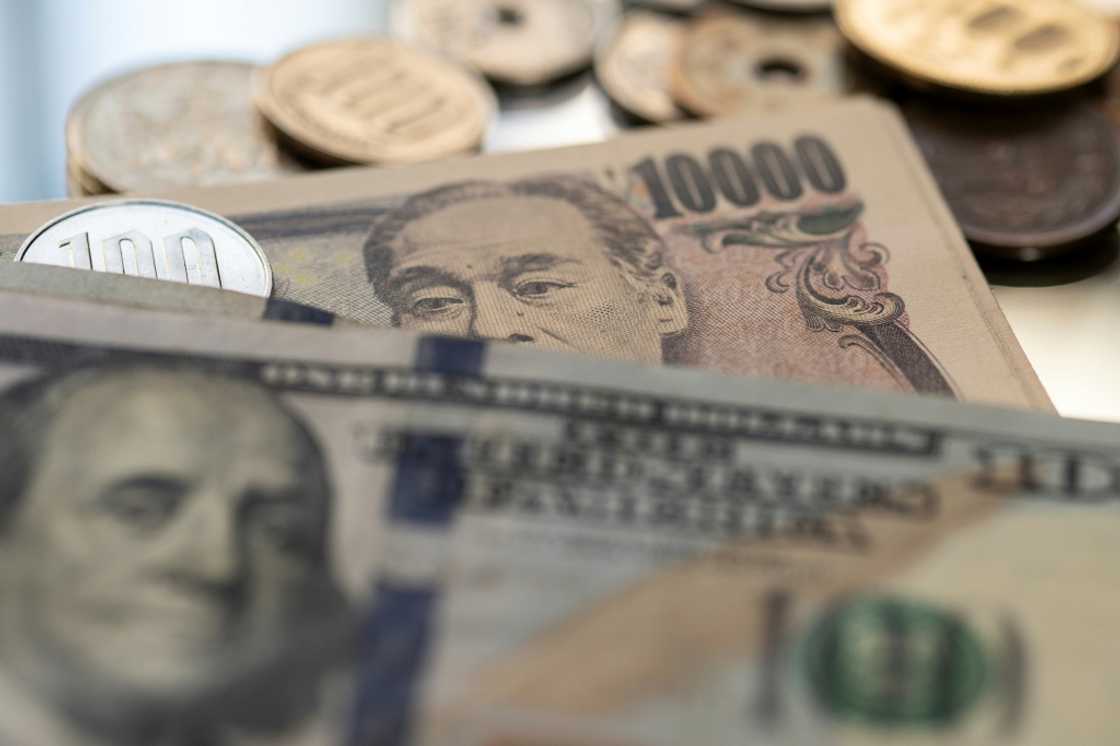Seoul, Tokyo vow 'appropriate action' on weak yen and won

Source: AFP
South Korea and Japan shared "serious concerns" on the recent weakness of their currencies against the dollar and agreed to take "appropriate actions" to counter extreme volatility, the finance ministry in Seoul said Wednesday.
The foreign exchange market has witnessed a surge in volatility following Iran's weekend drone and missile assault on Israel, in retaliation for what Tehran said was an Israeli strike on its embassy in Syria.
Seoul issued a rare warning on Tuesday, saying authorities were carefully monitoring currency movements as the won briefly touched a critical level of 1,400 per dollar for the first time in 17 months.
The yen has fallen to a 34-year low against the dollar as a string of above-forecast US inflation and jobs data sees investors re-evaluate their outlook for when the Federal Reserve will cut interest rates, while the Bank of Japan keeps monetary policy loose.
South Korean Finance Minister Choi Sang-mok and his Japanese counterpart Shunichi Suzuki discussed the matter in Washington this week on the sidelines of a G20 meeting, according to the finance ministry.
The two "shared serious concerns about the recent significant depreciation of the Japanese yen and the Korean won", it said in a statement.
PAY ATTENTION: All celebrity news in one place! Follow YEN's Facebook Broadcast channel and read on the go.
They also "expressed their intention to take appropriate actions against excessive movements", it added.
Speculation was swirling that the dollar will strengthen further after Fed boss Jerome Powell suggested US rates could be held at two-decade highs for longer than expected as the bank struggles to get inflation down to its two percent target.
The greenback has also risen against a range of other currencies this year, including the Indian rupee, Australian dollar and Thai baht.
The Japanese finance ministry's top currency diplomat recently hinted that intervention in markets to support the yen could be an option.
Tokyo last intervened in forex markets in October 2022, when it spent 6.3 trillion yen ($40 billion today) to support its currency.
A weaker currency is often regarded as beneficial for a country's export competitiveness and enhancing exporter profits. But a swift decline in value triggers worries over capital outflows and instability in financial markets.
The won has weakened more than seven percent against the dollar this year and the yen nearly nine percent, according to Bloomberg News.
"Foreign exchange authorities are closely watching exchange rate movements, foreign exchange supply and demand with special vigilance," officials from the finance ministry and the Bank of Korea, said in a statement Tuesday.
"Excessive herd behaviour is not desirable for our economy."
PAY ATTENTION: Stay informed and follow us on Google News!
Source: AFP



